The 2018 biopic On the Basis of Sex tells the story of Justice Ruth Bader Ginsburg long before she was nominated to the Supreme Court. The film follows her from her law school years to her first appearance before a court, giving some background to the rise of this women’s rights pioneer.
Directed by Mimi Leder and written by Daniel Stiepleman, the film provides an intelligent but emotional look at how a woman became a legend. The film is arguably even more relevant now than it was in 2018 in the wake of Justice Ginsburg’s death in September.
10 “A Court Ought Not Be Affected By The Weather Of The Day But Will Be By The Climate Of The Era.”
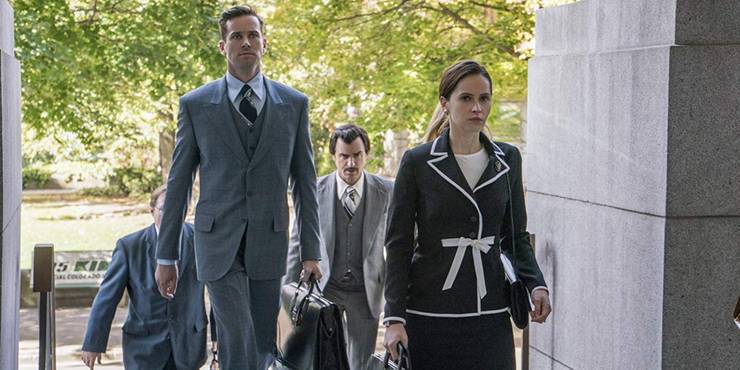
Ruth repeats Harvard Professor Freund’s words to Martin verbatim, and then repeats them to be sure. With these words, they come to the conclusion that the law is and forever will be a work in progress, that the oppression and inequalities of the present day don’t need to last forever.
When working on the Moritz case over a decade later, Ruth recalls this remark to Martin, postulating that they can use the same strategy to prove why the precedents of gender discrimination should no longer apply. He points out that the case in question at the time, Brown v. Board of Education, was a once-in-a-generation case. “And we’re the next generation,” Ruth replies.
9 “If The Law Differentiates Between People On The Basis Of Sex, Then How Will Women And Men Ever Become Equals?”
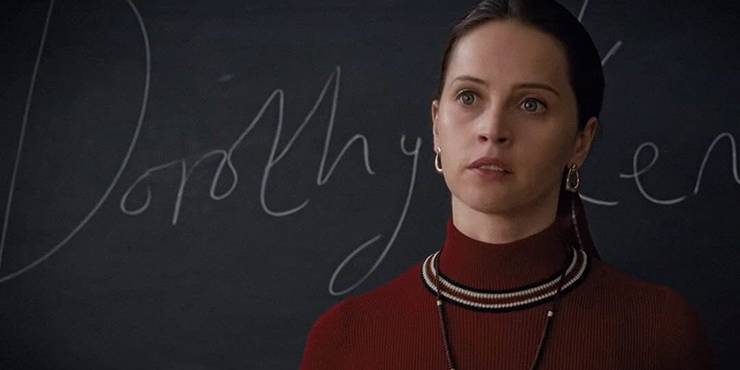
While teaching at Rutgers, Professor Ginsburg explains to her class a brief history of gender inequality in regard to the law. Her students are outraged to learn that women can be fired from their jobs for marrying their husbands. Some can’t work overtime, and their social security benefits do not provide for their families after their death.
She discusses the 1961 Supreme Court case of Gwendolyn Hoyt v. Florida, where the defense, Dorothy Kenyon, asked this question. The Court decided against Hoyt, making their reply clear: Men and women will never become equals. Ginsburg dedicated her entire life to undoing this declaration.
8 “The Times Have Already Changed.”
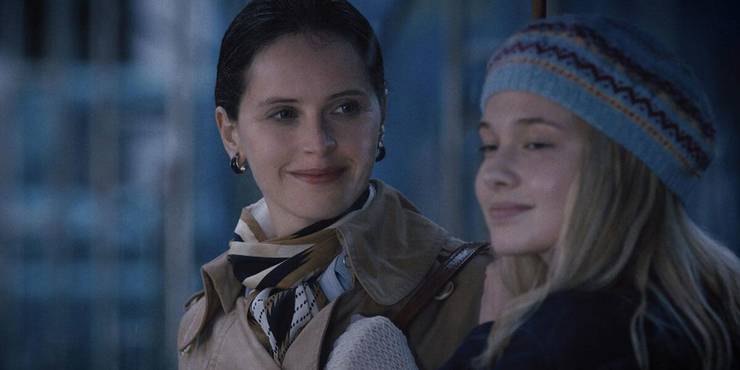
Ruth’s daughter Jane already enjoys a bounty of freedoms that Ruth didn’t have when she was a teenager despite their being separated in age by only twenty years.
After the two seek out the wisdom of the formidable Dorothy Kenyon, the civil rights attorney suggests that Ruth “change minds first, then change the law.” Through Jane and her students, who hold rallies and march in the streets, demanding change, Ruth realizes that the country’s mind has already changed and that now is the time to change the law.
7 “John Adams Forgot The Ladies.”
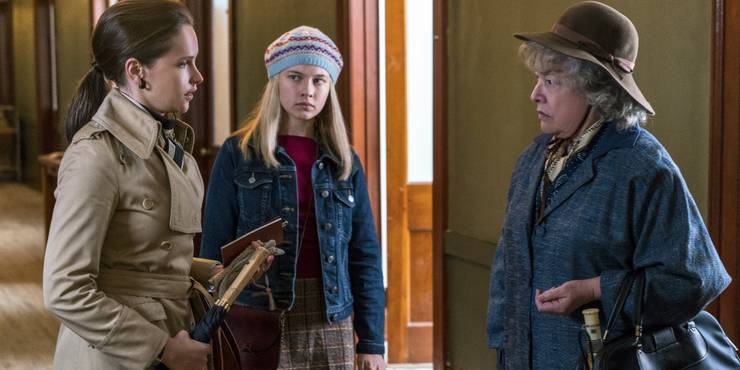
When she comes across the Reed v. Reed case, Dorothy Kenyon surprises Mel Wulf in his office. “In 1776,” she tells him, “Abigail Adams wrote her husband a letter. ‘As you write this new constitution,’ she said, ‘remember the ladies.’ Know what that bastard went ahead and did?”
Her words paint a picture, but, more importantly, they are a call to men, the people privileged enough to be the ones making, amending, and interpreting the law, asking them to do the right thing. The fact that only the male perspective was represented in the country’s legal system since its beginning is what made it so difficult for women to have a voice in the law, and it’s why gender equality at times seems so unattainable to this day.
6 “Who Was This For If Not For Me?”
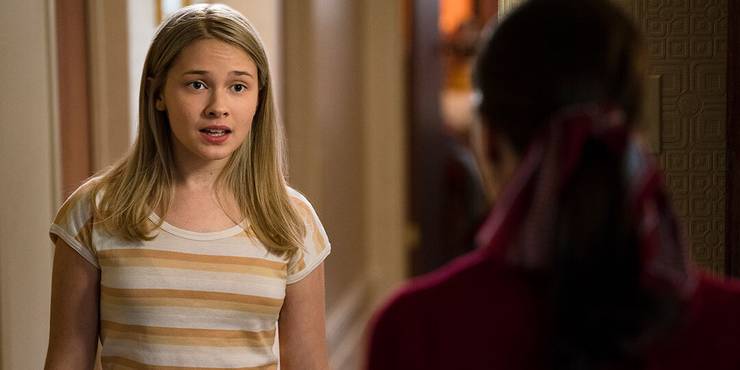
The government offers a settlement to Charles Moritz, which will give him the money he would have received had his caregiver tax deduction been granted but will not admit that Section 214, which discriminates between male and female caregivers, is unconstitutional.
As the situation feels hopeless and the case seems to be crumbling in Ruth’s hands, she is reminded by her daughter Jane that this case is about more than Mr. Moritz or even the tax code. It’s about the precedent. It’s about all the cases that would come later and about all the women who would be able to continue the fight because of her win today.
5 “You Don’t Get To Tell Me When To Quit.”

As the time comes for them to accept the offer, Mel Wulf is pleading with Ruth to convince Mr. Moritz to take the settlement, judging from what he heard of her in the moot court that she wouldn’t be persuasive enough to win the case.
In fact, Ruth would go on to be one of the most highly regarded litigators in the country. She won the Moritz case and used it as a precedent for winning dozens of other cases that reformed or dismantled laws that discriminated between the sexes. She also won five of the six cases she argued before the Supreme Court on behalf of the ACLU.
4 “[Exclusion Is] Not A Privilege. It’s A Cage.”
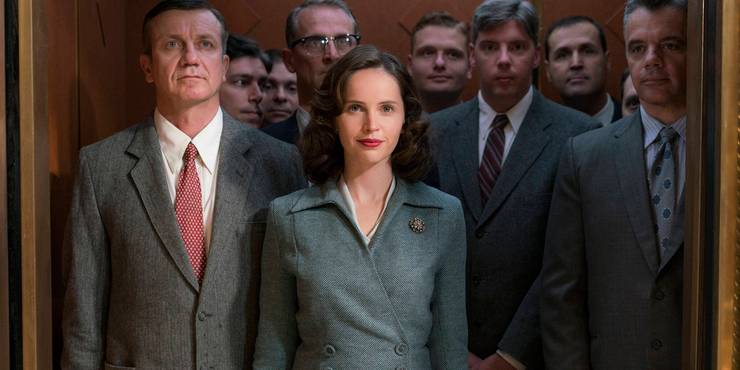
For centuries, men have written laws that differentiate between men and women, laws that assume men are the breadwinners and women are the housewives.
During their moot court, where Ruth and Martin practice their oral arguments for the Moritz case, Ruth references Appendix E, a list of laws the government compiled that discriminate based on gender, intended to show the judges the entire system that would be upturned if they ruled in Moritz’s favor. Ruth points out that the laws intended to give women the “privilege” of being excused from men’s obligations are really a cage and that “these laws are the bars.”
3 “Women’s Rights Are Civil Rights.”
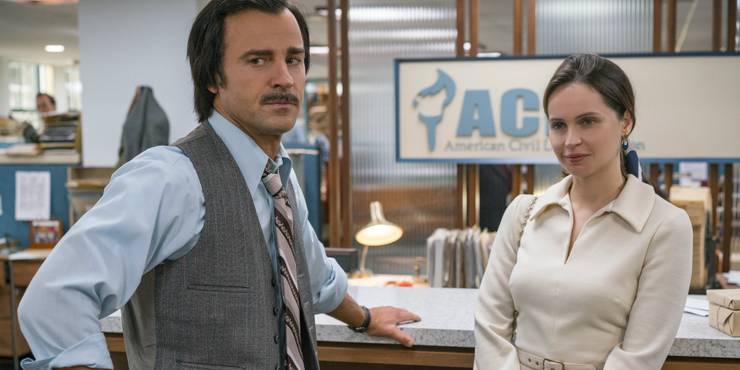
Ruth reminds Mel Wulf, the legal director of the American Civil Liberties Union, of this fact as she tries to convince him that the Moritz case is, in fact, within the mandate of the ACLU. The line is passed over as quickly as it was delivered, but it echoes a sentiment that becomes central to their argument: Gender and race are both “unalterable biological traits.” In the post-Civil Rights Movement era, it should have been clear that gender discrimination in the law was unconstitutional.
The real Ruth Bader Ginsburg, after successfully arguing the Moritz case and writing the brief for the landmark Reed v. Reed case, co-founded the ACLU’s Women’s Rights Project, for which she would go on to tear down laws that discriminated on the basis of sex.
2 “Nor Does The Word ‘Freedom.'”
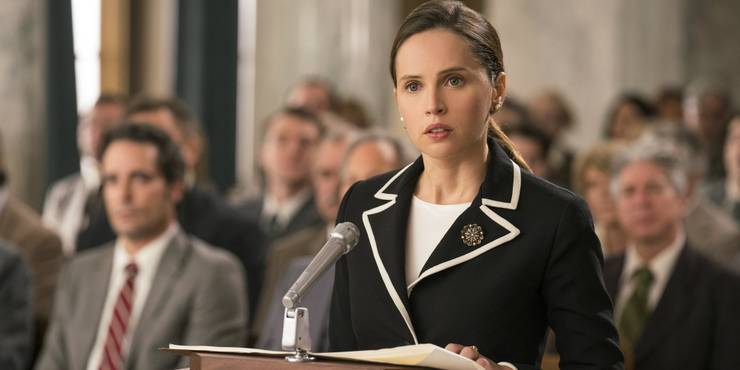
This is Ruth’s response to Judge Doyle when he doubts her argument’s constitutional handle, saying “the word ‘woman’ doesn’t appear once in the U.S. Constitution.” She goes on to argue that Section 214, which extends a tax deduction for a caregiver’s salary if the employer is a woman but not if he is an unmarried man, was never meant to discriminate against men and should be amended to include men in Mr. Moritz’s position.
While the government’s counsel provided the judges with a list of all the laws that were at risk of being overturned if Section 214 was ruled unconstitutional because they differentiate on the basis of sex, Ruth argues that a ruling in Mr. Moritz’s favor could topple a whole system of laws that bar the next generation from pursuing their dreams.
1 “We’re Never Giving Up… I Am Spending My Life With You, Martin Ginsburg.”

While the film itself is not a love story, the romance between Ruth and Martin Ginsburg finds a big role in the narrative. The couple attends law school together, during which time Martin is diagnosed with testicular cancer and given a 5% chance of survival. Ruth, though, won’t hear of it, insisting to him, “Jane will have her father, and you will be a lawyer.”
The end of the film finds them 16 years later arguing the Moritz case together, surrounded by Jane and their young son, James. Over 50 years later, Martin died at 78 years old. The two are buried next to each other in Arlington National Cemetery.
About The Author



